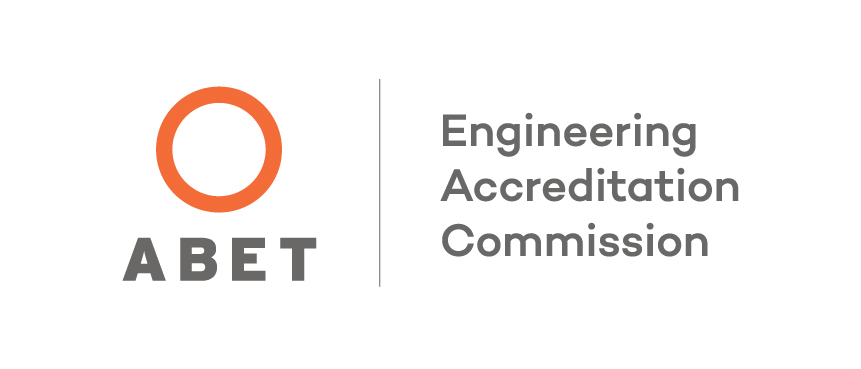Accreditation
Geological Engineering Program

The ABET accreditation process, a voluntary, non-governmental process of peer review, helps assure quality in educational programs. ABET-accredited educational programs must meet certain defined standards. The geological engineering program is accredited by the Engineering Accreditation Commission of ABET.
Program mission
It is the mission of the geological engineering program to teach integrated concepts of geology and engineering in such a manner that graduates will graduate as competent, ethical, and professional geological engineers. The program is designed to provide background in geological and engineering sciences courses in the lower division that supports the applied analysis and design concepts courses taught in the upper-division. It is expected that the students will have gained the ability to identify and, through analysis and design, solve problems resulting from the interaction of humans' activities with the geologic environment. The curriculum is intended to blend theoretical concepts with practical application to offer the student a well-rounded education, and to include sufficient discussion and project-oriented work with real-world issues to provide the student with a thorough awareness of the graduate’s responsibility to society. Since geological engineering students are oriented toward careers in environmental protection, social awareness and the engineer’s responsibility to both client and society is strongly emphasized throughout the curriculum, particularly in the senior seminar and design courses.
Program Educational Objectives
Graduates will serve public and private interests as future engineers and researchers practicing in the State of Missouri, the nation, and internationally; they will have the capability to become professional engineers.
Student outcomes
Students graduating from the Geological Engineering B.S. Program should have the ability to accomplish the following:
- Identify, formulate, and solve complex engineering problems by applying principles of engineering, science, and mathematics;
- Apply engineering design to produce solutions that meet specified needs with consideration of public health, safety, and welfare, as well as global, cultural, social, environmental, and economic factors;
- Communicate effectively with a range of audiences;
- Recognize their ethical and professional responsibilities in engineering situations and to make informed judgments which consider the impact of engineering solutions in global, economic, environmental, and societal contexts;
- Function effectively on a team whose members together provide leadership, create a collaborative and inclusive environment, establish goals, plan tasks, and meet objectives;
- Develop and conduct appropriate experimentation, analyze and interpret data, and use engineering judgment to draw conclusions; and
- Acquire and apply new knowledge as needed, using appropriate learning strategies.

Follow Geosciences and Geological and Petroleum Engineering